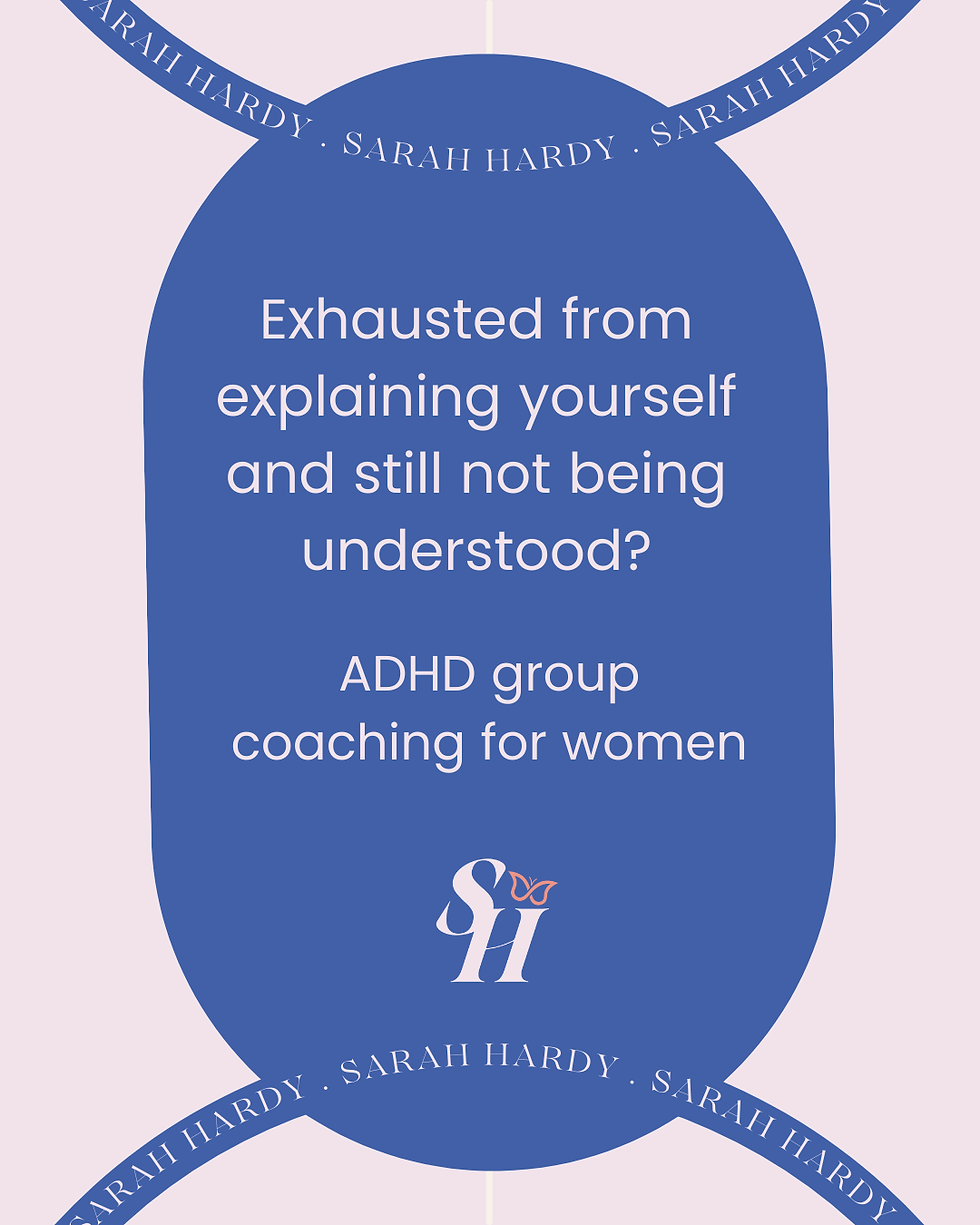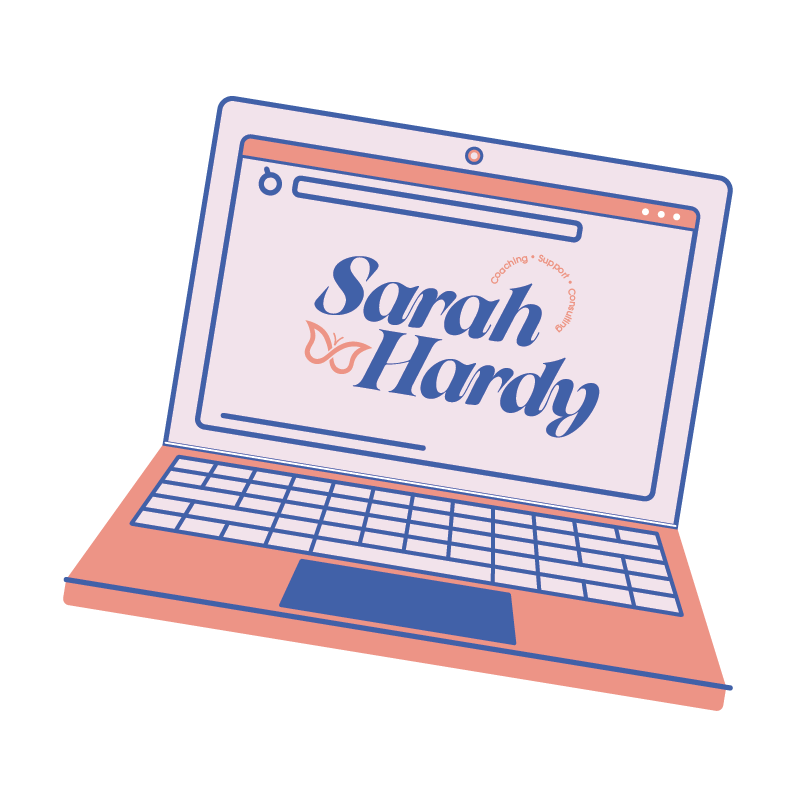ADHD, Autism & Overwhelm: Why You’re Not Coping (and What Actually Helps)
- Sarah Hardy
- Jun 10
- 3 min read
If you’ve found yourself asking “Why can’t I just get it together?”, you're not alone and you're not broken.
Whether you’ve been recently diagnosed, self-identified, or are still trying to make sense of things, living with undiagnosed or unsupported ADHD or Autism can leave you feeling constantly overwhelmed. Especially if you're a parent, a professional, or both juggling expectations, masking, and a brain that seems to work differently from everyone else’s.
As a coach with lived experience, and academic grounding in positive psychology, psychotherapy, and coaching psychology, I want to walk you through what’s really happening when life feels like too much and what support actually works when you're neurodivergent and overstretched.
What Does “Overwhelm” Really Mean When You're Neurodivergent?
Most of us throw the word around when we’re busy or stressed, but for neurodivergent people especially those with ADHD, Autism, or both overwhelm is a full-body experience. It isn’t just mental; it’s neurological, emotional, and often completely paralysing.
Common signs include:
Forgetting what you were doing mid-task
Feeling foggy or emotionally flat
Avoiding emails, messages or admin for days or weeks
Bursting into tears or shutting down completely
Knowing exactly what you should be doing and still not doing it
This isn’t laziness or lack of motivation. It’s often the result of executive dysfunction, nervous system overload, and living in survival mode for far too long.
Why It’s Not Your Fault: The Hidden Impact of Late-Diagnosed ADHD & Autism
Many of my clients are women and parents who’ve spent years high-achieving, people-pleasing, or spinning plates often without realising how much masking and overcompensating they’ve been doing.
By the time burnout hits, it doesn’t look like drama. It looks like doing the bare minimum, pulling away from people, or dropping balls you used to juggle with ease.
Here’s what’s often going on behind the scenes:
Executive functioning difficulties make planning, prioritising and task-switching harder
Rejection sensitivity can create intense fear of getting things wrong
Monotropism (a common autistic trait) can make transitions feel overwhelming
Dopamine-seeking behaviour leads to hyperfocus in some areas and paralysis in others
Nervous system dysregulation (hello, Polyvagal Theory) keeps you stuck in fight, flight or freeze
When these factors combine, you’re not just overwhelmed — you’re running on empty with no realistic way to recharge.
Why Typical Advice Doesn’t Work (and Can Make You Feel Worse)
You've probably been told to just:
"Get organised"
"Take breaks"
"Set SMART goals"
"Be more disciplined"
But we know that most generic productivity advice was designed for neurotypical brains. For many of us, it’s not only ineffective it fuels self-blame.
Because when it doesn’t work, you start wondering if you are the problem.
You're not.
What Actually Helps: Support Thats Designed for YOUR Brain.
As an EMCC-accredited coach with neuroaffirmative training and a master’s in positive psychology, I approach this differently.
Here’s what’s made the biggest difference for my clients and for me:
1. Build Awareness Without Shame
Understanding how your brain works changes everything. We use tools like the VIA Strengths Profile and Positive Intelligence Saboteurs Assessment to uncover what drives you and what’s been getting in the way.
Self-awareness is the antidote to self-judgement.
2. Regulate First, Plan Second
If your nervous system is overwhelmed, no planner or productivity system will work.Using insights from Polyvagal Theory, we focus on calming your system first so you can access the part of your brain that’s actually able to plan, decide and take action.
3. Make it Smaller, Not Harder
You don’t need to overhaul your entire life. We focus on one manageable area at a time, building consistency before we layer anything else in.
Small wins build self-trust and self-trust is more powerful than any to-do list.
4. Create Systems You’ll Actually Use
Together, we develop strategies and supports based on how you function. That might include:
Energy-matching your tasks to your day
Gentle accountability
Visual reminders or “external brains”
Body-doubling and flexible routines
No shame, no judgement. Just support that feels possible.
You’re Not Behind. You’ve Just Been Running a Different Race.
If you’re overwhelmed, it’s not because you’ve failed. It’s because you’ve been trying to function in a way that doesn’t fit.
Support is available. Coaching isn’t about forcing you to push harder, it’s about helping you reset, rebuild, and move forward in a way that finally makes sense.
Ready to Feel Less Overwhelmed?
If you're tired of constantly firefighting, dropping balls, or feeling like you’re one step behind, you don’t need to do it alone.
I offer 1:1 coaching for late-diagnosed or self-identified neurodivergent adults grounded in experience, evidence, and empathy.
👉 Book a free call here and let’s figure out what support could actually help.





HOW'S IT GOING WITH GUY'S----OVER THERE TODAY.
I'm MUHAMMAD KAMAAR A Wix Partner. During a recent review, Wix’s technical team highlighted your website and recommended it to my team for support pointing out areas to improve performance, visibility on Google, and overall accessibility for users.
After conducting a detailed review, I noticed a few technical search rank hurdles, crawl errors, slow indexation, missing structured data, and accessibility gaps like unlabeled images and keyboard-navigation issues. Left unaddressed, these can limit visibility, delay Google indexing, and affect user experience.
By optimizing your site with the right search rank strategies and webpage design (including any potential redesign where needed), we can boost traffic and increase actions from visitors.
If you’re interested, I can…